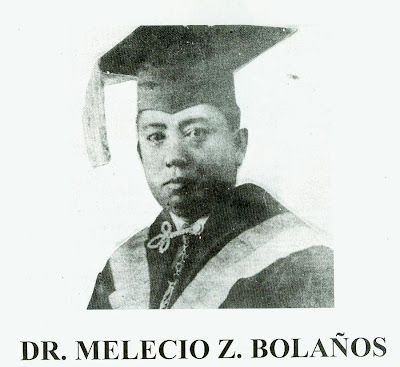Chapter VIII
In the 21st Century
A Premier Town AgainResults of Two Elections
Belated Surprising Episode
A Premier Town Again
After losing its position for several decades as a first class municipality of Batangas; Rosario finally acquired its 1rst class place again before the advent of the 21st century.
Trade and industry had risen, increasing the collection of the municipal treasury in fees and taxes, surpassing expected levels.
Early in the new century there are already some eight (8) rural banks and three (3) commercial banks -- the Landbank of the Philippines, the Bank of the Philippine Islands (BPI) and Metro Bank which have established their branches here.
Cell sites have been installed in several location around the poblacion and in some barangays, complementing the existing telecommunication facilities of the PLDT Toll Station and Digitel Phils. Inc.
Many of the amenities of an urban community are now present in Rosario.
The town's other growth areas are catching up with progress and modernization. In Barangay Masaya, the Puyat Steel Corporation has established a galvanizing plant producing the APO Galfan G.I. sheets.
Nearby has commenced the establishment of a commercial recreational and residential hub -- the Pueblo Niño Town Center.
The Batangas State University has opened its extension of its Rosario Campus in Barangay Namunga of the site donated by the Zuño and Inandan families.
A few years later, a private college, the Teodoro Luansing College of Rosario was also established in the same barangay.
Results of Two Election
Mayor Villar had to end his 3rd consecutive and last term in 2001 as required by law. He had his wife ran for mayor.
Mrs. Clotilde G. Villar was elected the 1st lady mayor of this town. Unfortunately, she was practically incapacitated early in her term by sudden illness.
Her husband ran in the election of 2004. This time he lost to a several-times mayoralty aspirant, Felipe A. Marquez, Mayor Marquez is fondly called Mamay Ipe.
The new administration at once was able to secure funds from the provincial and national governments through the help of Sen. Ralph G. Recto to undertake the rehabilitation of: the poblacion main streets, the face lifting of the municipal hall, the massive rehabilitation of existing facilities like the construction of additional buildings in the public market.
The annual Sinukmani Festival and Sisterhood with Makati City happened. Production of History Books were completed.
Belated Surprising Episode
Rosario has not only regained its lost prestige as a premier town of the province. By the year 2003, its character and its people were even brought to the attention of the Hispanic world, and earned a place in Spain's military history in the Philippines, with the launching of a historical novel, "¡Olvidad Filipinas!"
 Late in May 2000, a Spanish journalist and writer, Sr. Josep Moya-Angeler, came to the Philippines. He was on historical research, ending his quest here in Rosario for the memorable places his great grand father, Lt. Mariano Mediano had been to.
Late in May 2000, a Spanish journalist and writer, Sr. Josep Moya-Angeler, came to the Philippines. He was on historical research, ending his quest here in Rosario for the memorable places his great grand father, Lt. Mariano Mediano had been to.He was to check and complement the historical documentation by Prof. Cesar M. Weiker, a historian about the incredible story of Lt. Mediano, the last Spanish hero in the Philippines. His group of seventeen (17) Spanish prisoners-of-war in all were last detained in (old) Rosario during the Philippine Revolution. The professor is a grandson of Lt. Mediano.
Sr. Moya was assisted by this author through his interpreter. They were accompanied to the historical places in (old) Rosario, mentioned in the diary of Lt. Mediano. This author also shared his history references and notes about Rosario with Sr. Moya. Finally, he was introduced to an old doctor, Dr. Jose R. Gregorio.
Sr. Moya was excited to learn that Dr. Gregorio could speak Spanish, and that he is the grand nephew of Rosario's revolutionary leader, Col. Melecio Bolaños. The doctor is the grandson of Lt. Protacio Recto, the official jailer of the Spanish prisoners-of-war. Dr. Gregorio still remembers the stories told him by his mother about the Spanish prisoners and shared them with Sr. Moya. His mother was then a girl of ten during the revolution.

Sr. Moya was gratified and sentimentally moved by the outcome of his mission in Rosario. He, and Prof. Weiker extensively featured the events and sentimental memories of the Spanish prisoners, during their detention in Rosario, in four (4) of the concluding chapters of this historical novel satirically titled ¡Olvidad Filipinas!
In a letter dated April 22, 2003, accompanying the complementary copy of the book sent to this author; Sr. Moya once again gratefully acknowledged the attention accorded the Spanish prisoners in Rosario, in contrast to the cruelty of war other prisoners received in other parts of the country.
Of the acknowledged resource persons in the book; only the group picture of Dr. Gregorio and this author with Sr. Moya appeared in the Epilogue of the novel -- a gesture of appreciation for the goodnes of the town and the people of Rosario as a while.
Source: Rosario of Batangas: Its Origin and Developments, 2008 Edition. Reprinted by permission of the author, Conrado T. Reyes.
NB: Links and image were supplied by Rosario Batangas Information for information purposes only and therefore not part of the original paper copy of the book Rosario of Batangas: Its Origin and Developments.




No comments:
Post a Comment